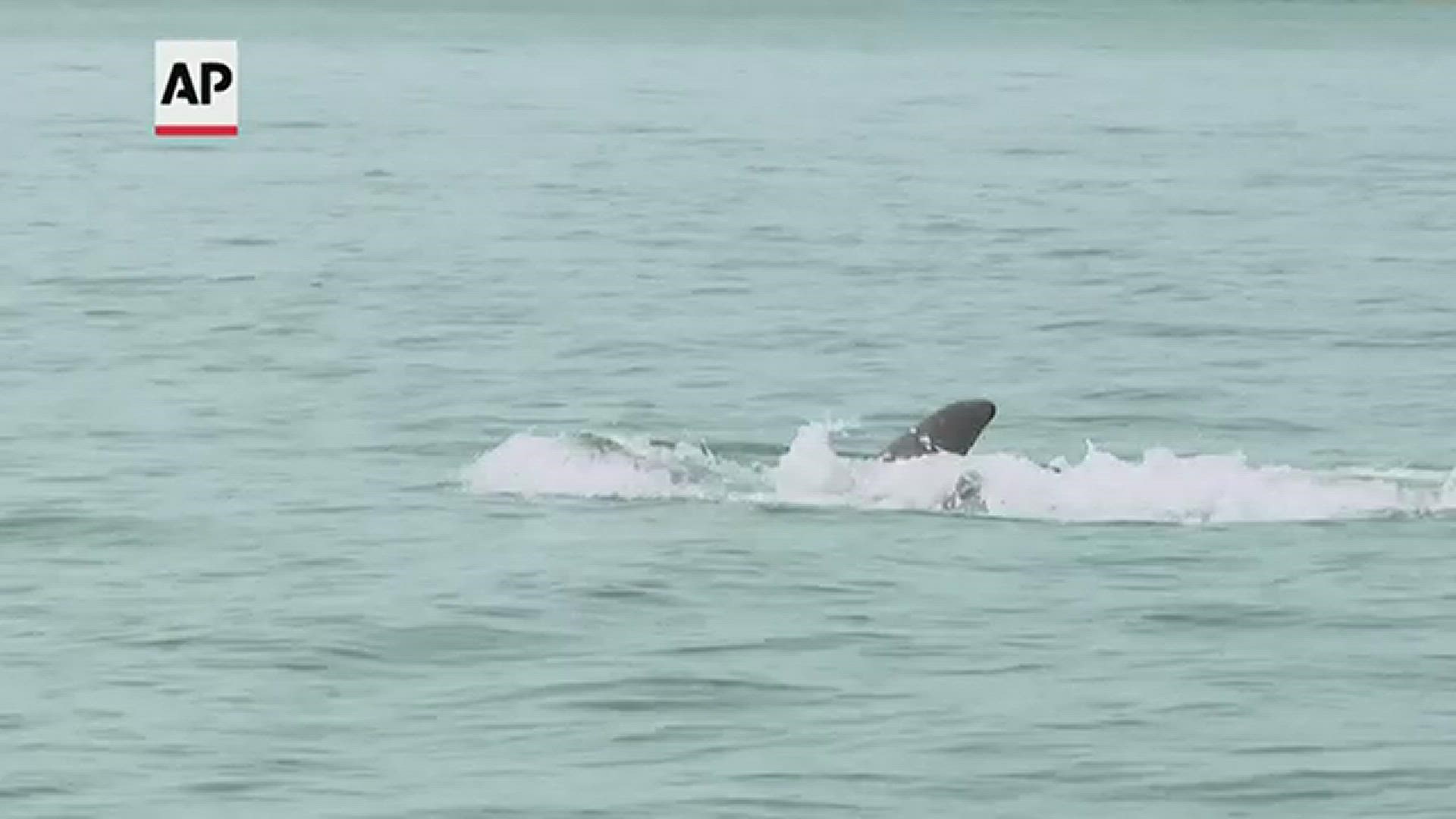DIXIE COUNTY, Fla. — The video attached to this story is from a previous, unrelated report.
Scientists have found the American case of a dolphin with bird flu, or avian influenza virus.
It's the second ever worldwide.
The dolphin was found dead in March at Horseshoe Beach in Dixie County by the University of Florida's marine rescue team.
Researchers did not expect anything out of the ordinary right away, but during the dolphin's necropsy, tests for common causes of deaths in dolphins turned up negative. Later tests determined that the dolphin had contracted bird flu.
“This dolphin had inflammation of the brain and also the tissues surrounding the brain, known as the meninges,” said Robert Ossiboff, an associate professor of veterinary anatomical pathology at UF. “This finding was unusual.”
A collaboration between UF College of Veterinary Medicine researchers and state and federal laboratories identified the unexpected infection with HPAIV (avian influenza/bird flu).
The virus primarily affects wild birds and domesticated poultry. It can affect people, but this is rare.
Researchers suspect the dolphin likely got infected by interacting with a wild bird which had died from the disease.
“While obviously the presence of HPAIV is a concern, the key takeaway for us is that additional caution should be taken by those handling or encountering wild dolphins during rescue events or while performing necropsies,” said Mike Walsh, D.V.M., a clinical associate professor with UF’s College of Veterinary Medicine who leads the animal rescue team and performed the dolphin’s necropsy with others.
“However, this dolphin had inflammation of the brain and also the tissues surrounding the brain, known as the meninges,” said Robert Ossiboff, an associate professor of veterinary anatomical pathology at UF. “This finding was unusual.”
Andrew Allison, Ph.D., an assistant professor of veterinary virology at UF, studies viruses that normally circulate in wildlife populations, primarily wild birds and mammals.
“Although avian flu infection had never been documented in a dolphin, the high incidence of the virus in wild birds within the state in the spring — specifically aquatic bird species such as ducks, gulls, terns and herons — suggested that encounters between dolphins and dying or dead birds near the shoreline was not out of the realm of possibility,” he said.
Because of the dolphin's symptoms, Allison believed that the dolphin could have died from HPAIV infection.
On the basis of these initial suspicions, the UF researchers sent brain and lung samples of the dolphin to the state’s Bronson Animal Disease Diagnostic Laboratory in Kissimmee, where the samples tested positive for bird flu.

